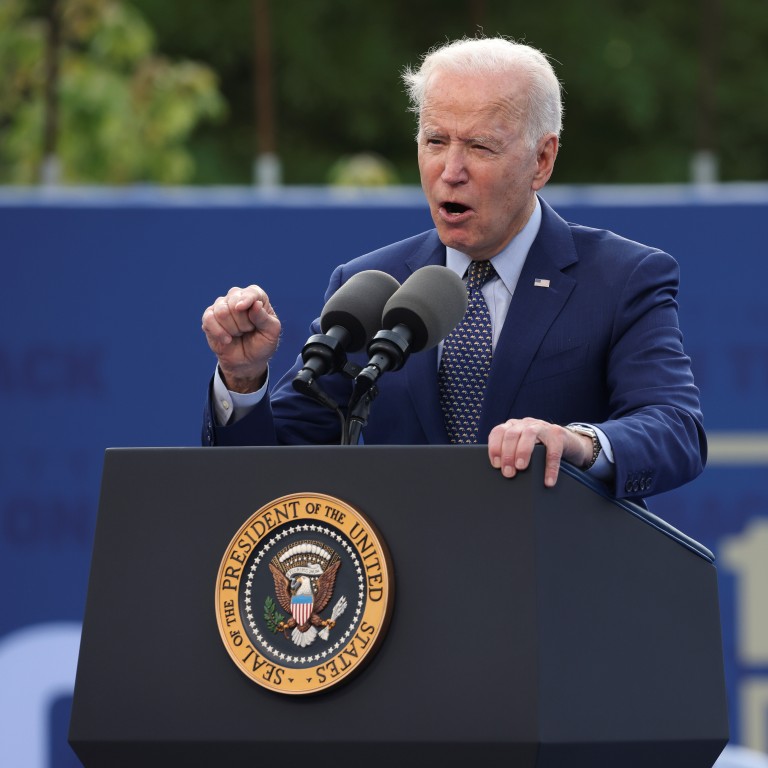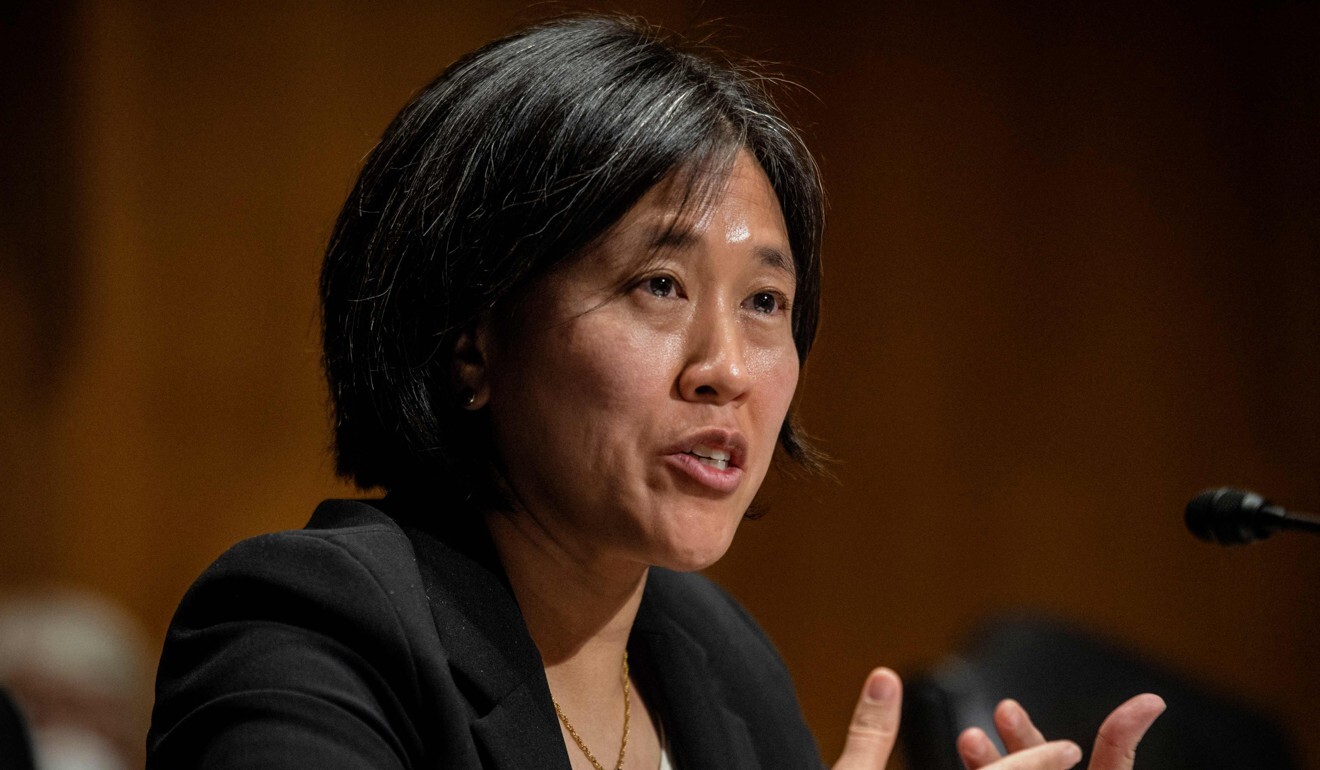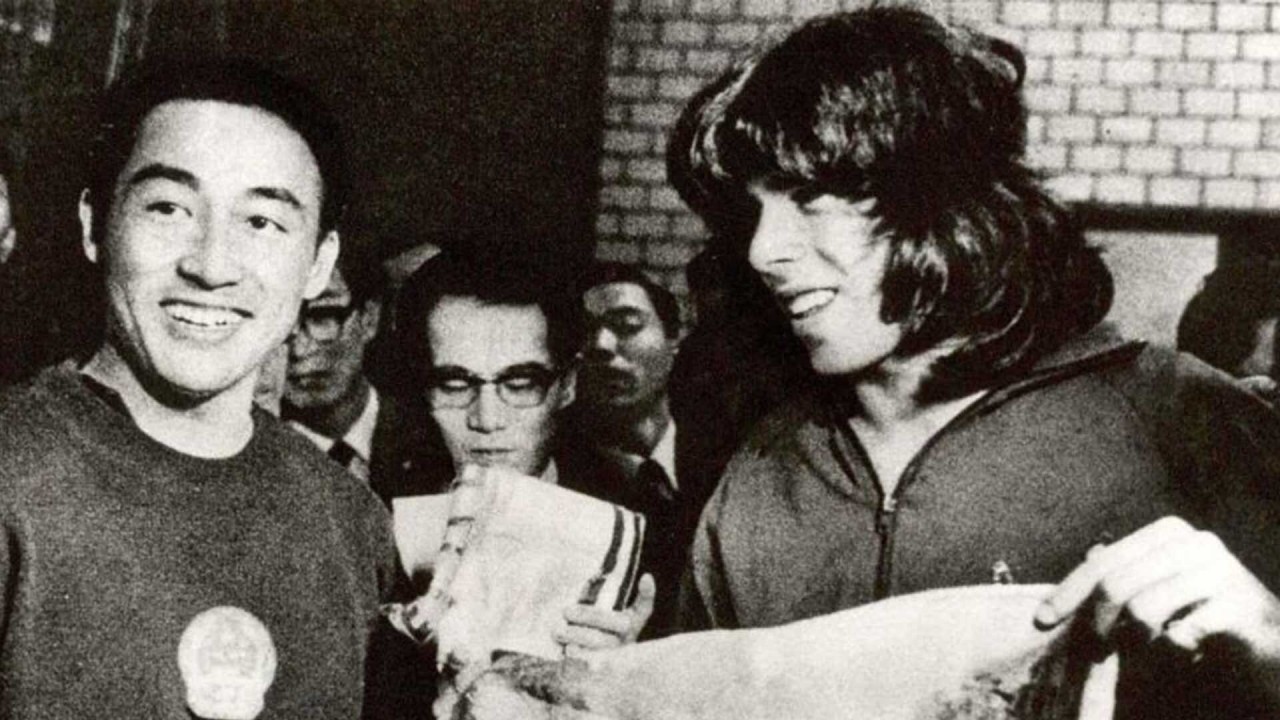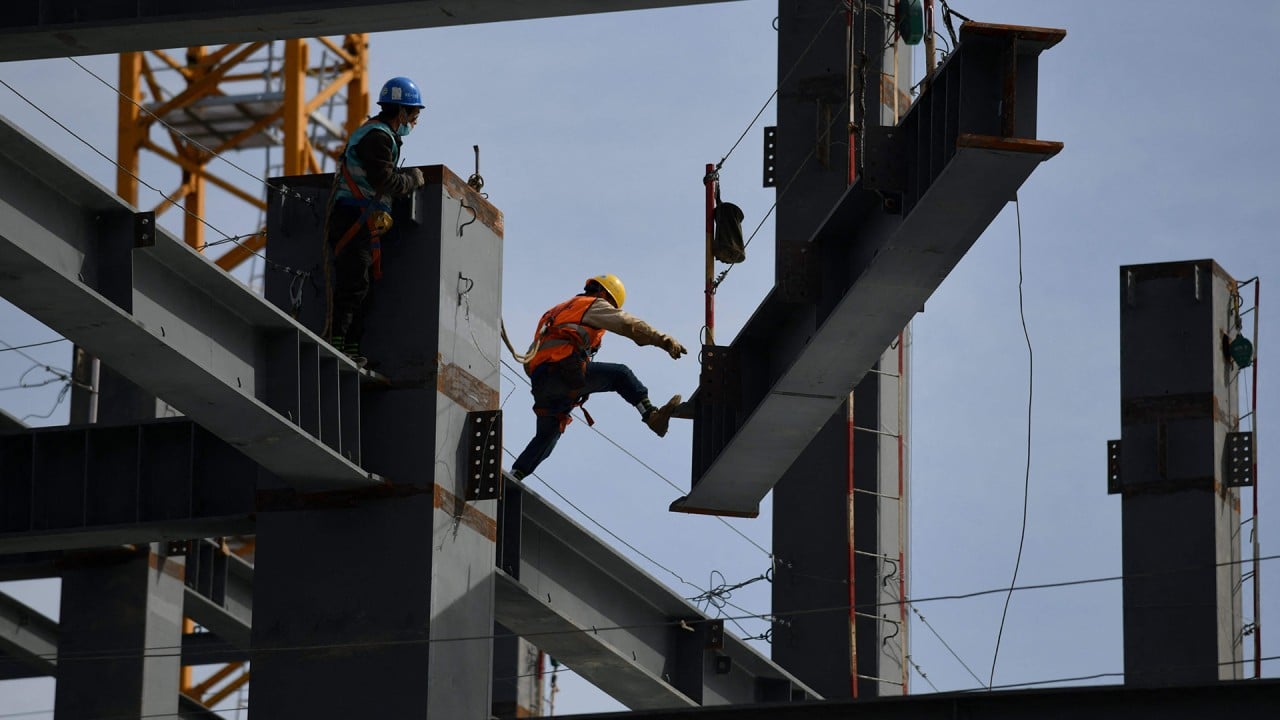
No time for talking on US-China trade deal in Joe Biden’s first 100 days
- Beijing waits, but Washington is in no hurry to start discussions which are long overdue as part of phase one agreement
- Chinese officials use anniversary of ping pong diplomacy to talk up the importance of relations built up over decades
US exports to China picked up in the first quarter – a rare bright spot for US trade – but Chinese purchases from the United States continued to fall short of the targets set in the deal.
Tai said on Wednesday the Biden administration was examining China’s performance regarding the trade deal but also said her office had not started its review of US trade policy towards China.

In China, events were held in Beijing and Shanghai to mark the 50th anniversary of ping-pong diplomacy, which led to president Nixon’s 1972 visit and eventually to the normalisation of bilateral relations.
Senior officials talked up the need to cherish the relationship which had been hard won over decades, and called on US companies to exert influence on Washington to remove tariffs on Chinese products and stop supply cuts to China’s tech companies.
But a US business leader in China said Beijing needed to implement and deliver its commitments in the phase one trade deal before the two countries discussed how to move forward.
“We don’t really see those tariffs going away any time soon. We certainly have not heard signals of that,” Alan Beebe, president of the American Chamber of Commerce in China, said at one of the events last week in Beijing.

03:07
Chinese and US table tennis players mark 50 years since ‘ping-pong diplomacy’
“We certainly hope for more communication between the two governments. What we’d like to see in terms of trade talks is first the implementation and the completion of the phase one trade deal that was negotiated with a lot of effort from both countries.
“That, in our view, is a good start. Once it’s completed, then of course we hope both governments will sit down and have more substantive discussions around what people often refer to as a phase two,” he said.
Chinese observers have repeatedly said the purchase targets set in the phase one deal are unrealistically high and they expect the deal will just go away over time.
“We are not on the same page”, said Lu Xiang, a senior researcher at the Chinese Academy of Social Sciences.
“It may take a few more months for internal deliberation on China policy. Nothing can be done from our side except to be patient,” he said.
A US business source said both sides wanted to keep the deal – agreed under the previous US administration – but there were doubts over whether there would be any new discussions about it.
The Chinese government report to last month’s National People’s Congress, presented by Premier Li Keqiang, said Beijing would “promote the growth of mutually beneficial China-US business relations on the basis of equality and mutual respect”.
The wording was vague and lacking in substance compared with last year’s report, which said the government would “jointly implement the China-US phase one trade deal”.
US-China phase one trade deal largely a ‘failure’, new study suggests
David Dollar, a senior fellow with the Brookings Institute, noted in his commentary this week that the USTR, treasury and commerce departments are still lacking the high-level appointees needed for comprehensive economic discussions with Beijing.
Lu said inaction from US trade officials was due to the lack of guidelines from upper-level decision makers in the White House.
“Key parts in the bilateral relations are absent. How to handle and balance economic and political relations with China, and which ground it bases on in making China-related decisions, are not there,” he said.

02:01
China’s economy expands record 18.3 per cent in the first quarter of 2021
Shi Yinhong, a professor with international relations with Renmin University, said there had been no sign of when and what to talk about in terms of possible changes to the trade deal amid the heightened rivalry between the two countries.
“Biden has exerted much larger pressure on China than his predecessor,” he said. “We are seeing the start of a new and complicated cold war.”
“Trade has dropped from the priority on the table. The US is not only decoupling on hi-tech from China but taking a step further to contain China’s home-grown innovation efforts,” Shi said.
Yan Xuetong, head of International Relations Institute with Tsinghua University, said in an interview with Chinese domestic media that economic relations had lost their influence in shaping the overall bilateral relationship.
China should keep going global and also continue to welcome “foreign capital, talents, technology and thoughts” so as to better counter Biden’s challenge, he said.


